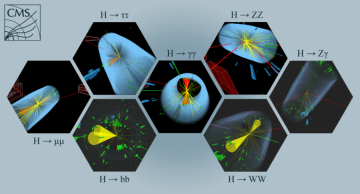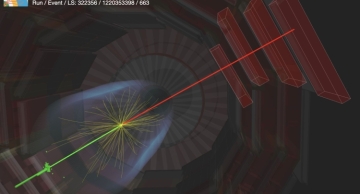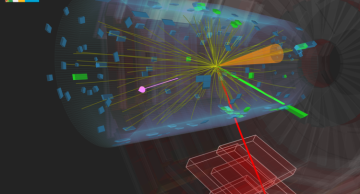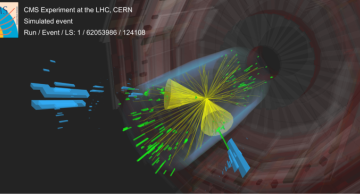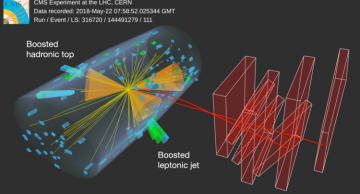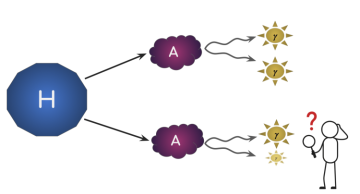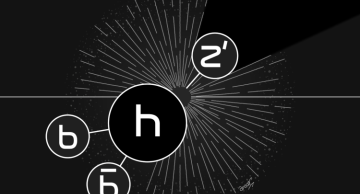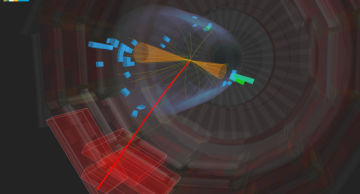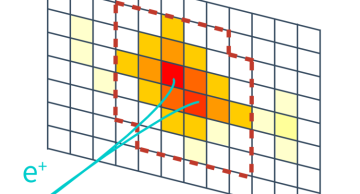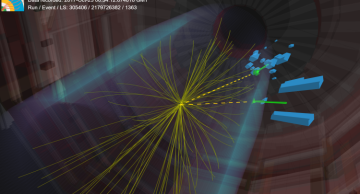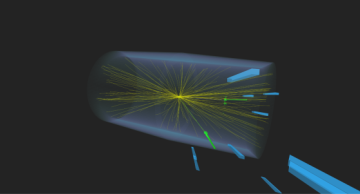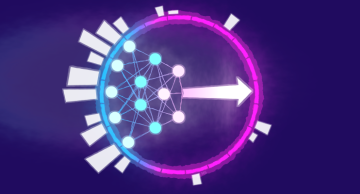In a much anticipated result, the CMS experiment presents the legacy combination of Higgs boson studies using the full LHC Run 2 data, recorded between 2016 and 2018 – the result is the most precise and comprehensive measurement of the Higgs…
The CMS Collaboration probes decays of the Z boson which would defy our expectations of lepton behavior
How strict are Nature's conservation laws governing the interactions among elementary particles? Physicists once assumed, based on experience…
Measuring the charge asymmetry in W boson-associated production for the first time, paves the way for testing the coupling of the Higgs boson to charm and lighter quarks.
A new angle on Higgs physics
In a new analysis, the CMS experiment at CERN…
An interactive version of the event display is found on a separate, full page here.
For the first time at a hadron collider, the CMS experiment measures the mass of the W boson from hadrons.
Hadrons are particles made out of quarks and gluons, and…
The CMS collaboration expands the search for supersymmetry by exploring a wide variety of final states with boosted particles, in a new analysis called “razor boost”.
Supersymmetry, or SUSY, which suggests that every known particle has a new…
CMS breaks new ground by reconstructing challenging photon signatures using machine learning, opening new paths in the search for physics beyond the standard model.
What if a new exotic particle from a non-standard Higgs boson decay escaped…
Remember the media buzz when we finally pinned down the Higgs boson in 2012? Turns out it might have a shadowy cousin – the dark Higgs – and CMS is chasing it down.
CMS scoured its entire Run 2 data set,138 fb–1 of proton-proton collisions at…
For the first time, the CMS experiment measures the production of single top quarks in a mode called the “t-channel” at 5.02 TeV, reporting results aligned with the standard model expectations.
In the quest to probe the fundamental laws of…
The CMS collaboration has developed a new technique to distinguish electron-positron pairs travelling so closely together that we see them as a single cluster of deposited energy.
Identifying electrons is one of the greatest strengths of the CMS…
By observing decays of Higgs bosons into pairs of photons, the CMS experiment probes anomalous interactions, including those between Higgs bosons and W/Z bosons or gluons when all particles are replaced with their antiparticles and space is…
The CMS experiment sets limits for BSM particles down to tens-of-MeV aided by machine learning techniques.
Axion-like particles (ALPs) are hypothetical light-weight neutral bosons that could solve deep mysteries in physics, from the strong CP…
The CMS experiment employs a new machine-learning algorithm to improve the reconstruction of invisible particles.
How can one measure particles that escape the detector without interaction? This is the challenge for a key fundamental particle, the…

